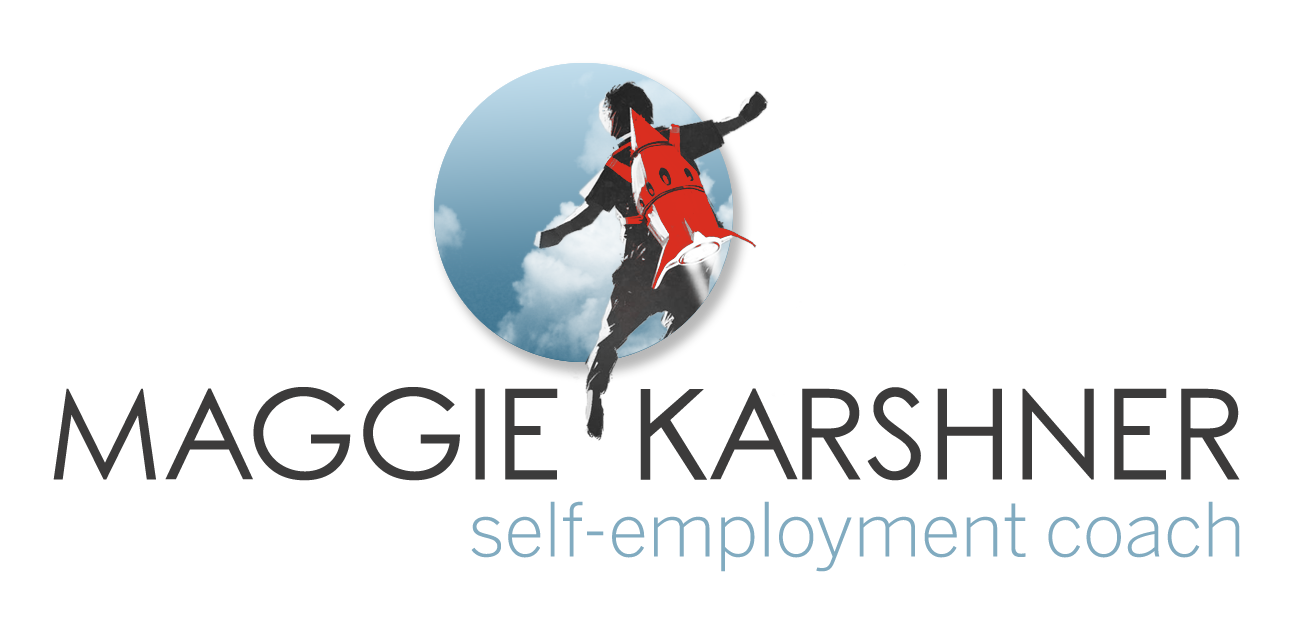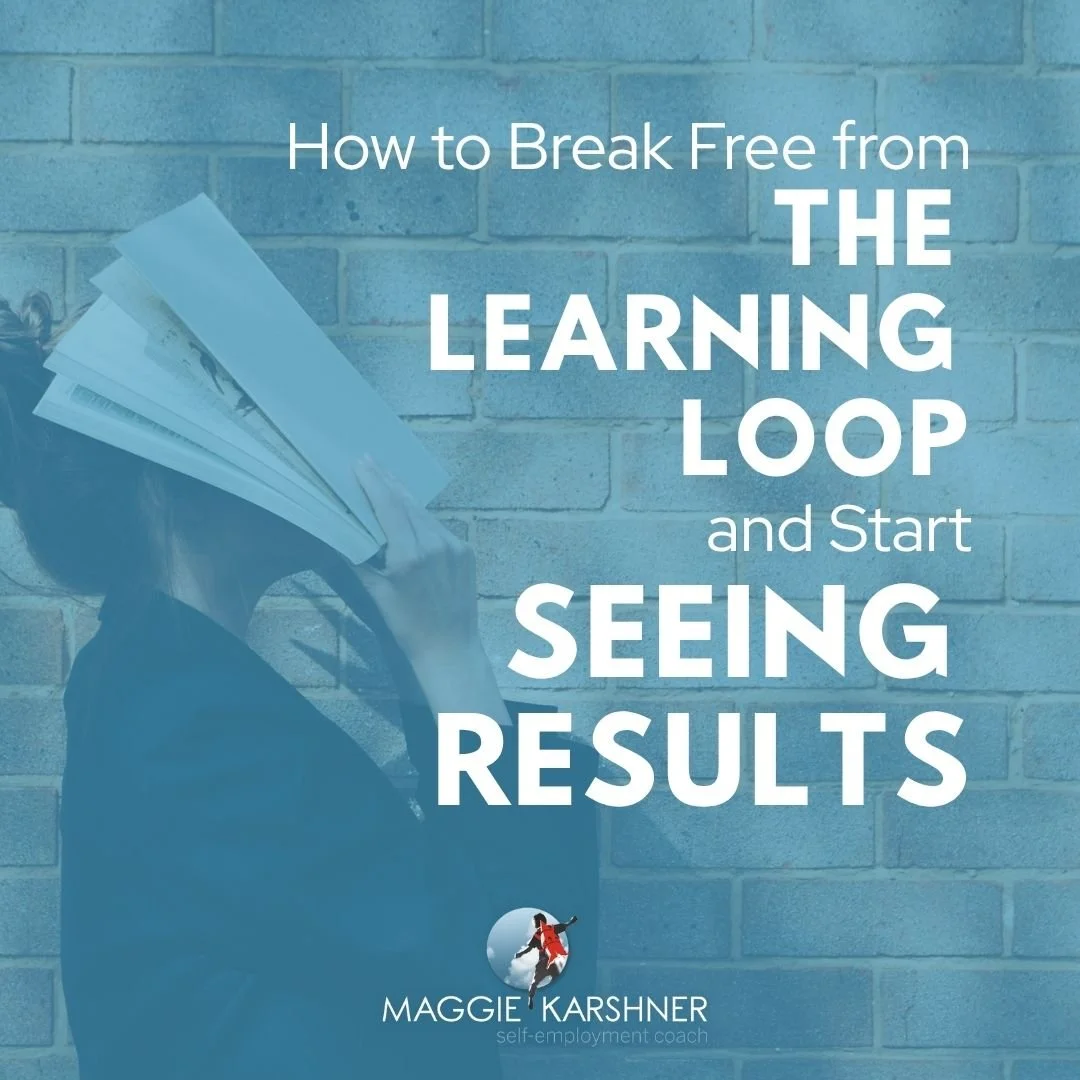How to Break Free from the Learning Loop and Start Seeing Results
/In a recent group coaching session, I made a confession: I’m behind on my blog writing. It’s unlikely that I’ll publish one by the end of the month, I said, swallowing my pride. One of my clients turned my own advice back on me. She reminded me to take my own medicine — to stop overthinking and start doing. So here I am, following through on that. This article isn’t about perfection. It’s about action.
The Lifelong Learner’s Trap
Most of my clients are lifelong learners. They love soaking up knowledge — whether that’s a new book, a workshop, or an online course. I’m the same way. I love learning! It feels productive, inspiring, and an intoxicating balance of discomfort and safety. But here’s the truth: learning can become a distraction from doing.
Taking one more class or earning another certificate can feel like progress. But adding credentials doesn’t build your business — especially if you’re just getting started. Improving your skills at the service you offer is valuable, of course. But it’s not the same as finding and serving clients. You can be the most skilled practitioner in your field, but if you never tell anyone about it, you won’t have a business.
Why Self-Help Doesn’t Help
I’ve read my fair share of self-help books, and I’m willing to bet you have too. They promise clarity, motivation, transformation — but more often, they deliver a temporary high. You feel like you’ve accomplished something by reading the book… even though nothing has changed. Or maybe you've experienced an awesome mindset shift! But is there action that will follow that up?
Most self-help books don’t work because they give a false sense of progress. They offer advice that’s common sense but hard to actually do. And they don’t come with accountability — the missing ingredient that turns ideas into action.
The result? A cycle of consumption. You read one book, feel a burst of motivation, stall out, and then buy another book to feel better. The pattern feels like progress, but it’s just a prettier version of procrastination.
Why Business Books Aren’t Your Business
Business books often have a similar problem. Many are written to promote the author rather than to genuinely help readers. They lay out one-size-fits-all formulas that might have worked once, in a specific context, for a specific person. But business success isn’t a paint-by-numbers process.
These books might lead you to think they’re not “ready” yet. You read, you plan, you refine your idea, you tweak your offer — and all the while, you’re not actually selling anything. You're not taking anything to the market to get real results! Books can give you inspiration and frameworks, but they can’t give you a business. When the rubber meets the road, only you can take the necessary actions (and fail the necessary amounts of times) before you succeed.
The Difference Between Learning and Building
There’s a huge difference between learning your craft and learning how to sell your craft. Courses and trainings teach you the first part. But it’s the second part — the business part — that makes self-employment sustainable. No one skill or certificate will have customers banging down your door without having to market or sell your business.
You can keep learning forever, but at some point, you have to take what you’ve learned and put it into action. That means showing up, telling people what you do, and asking them to buy it. That means imperfect websites, awkward first client conversations, and trying things before you feel ready. Because that’s how learning actually sticks — through doing.
So, Stop Learning (for Now)
Don’t get me wrong: learning has its place. But when you catch yourself hesitating to take the next step — waiting until you’ve read or learned “just one more thing” — that’s your cue. You don’t need another book, or another course, or another plan. You need to start. So whatever you’ve been putting off — posting about your offer, sending that follow-up email, launching that service — take your own medicine and do it. You can always learn more later. But first, let’s see what happens when you act on what you already know.




